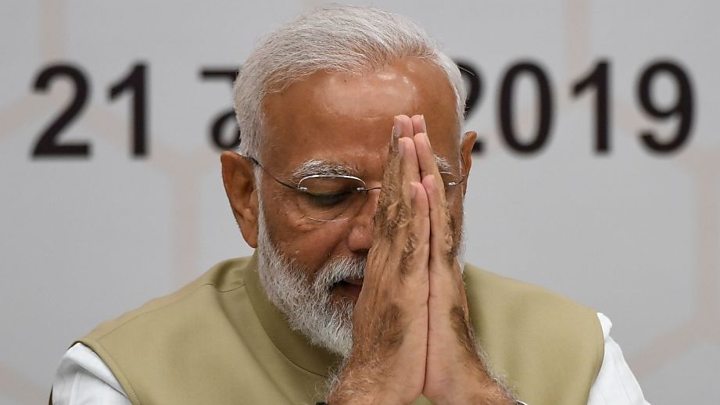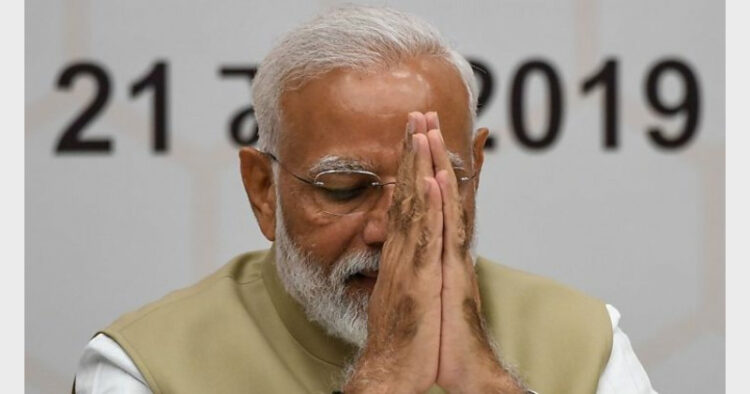In the run-up to the election, the Indian Diaspora community witnessed a series of anti-Modi, anti-India and anti-Hindu reporting in international media with many leading papers joining the orchestra
-Avatans Kumar
The Indian diaspora around the globe was eagerly waiting for the results. When the counting of votes started on May 23, there was little doubt that the BJP-led NDA will emerge as the single largest party. Most exit polls had suggested a second term for the BJP and Modi-led NDA. By the time most Indians were ready to call it a day, it became pretty obvious that the BJP will end up with the enviable mark of 300 (or more) Lok Sabha seats on its own. For many of us expats in the US (at least in the East and Central time zones), it was close to midnight or soon after that it became obvious that the BJP was destined to get an absolute majority on its own. Most were glued to TV sets, many were streaming election result coverage on the computer screen along with WhatsApp ‘Election Watch’ groups. Many centres had organised watch parties as well.

This election was remarkable in many ways. Its socio-political impact will be analysed and discussed at length by the experts and commentators for some time to come. However, one factor that directly concerns the diaspora community around the world is the negativity and vitriolic that was put out in the world media by ‘Fai journalists’. Syed Ghulam Nabi Fai, for those who are not aware, was a Kashmiri separatist who became a naturalised citizen of the United States of America. In 2011, at the age of 62, he pleaded guilty to conspiracy and tax violation charges in connection with a decades-long scheme to conceal the transfer of at least $3.5 million from the Government of Pakistan to fund his lobbying efforts in America related to Kashmir. In other words, Fai was getting money from the Pakistan intelligence agency ISI and was using it for his anti-India lobbying efforts. Many believe that the network is still operational.
In the run-up to the election, we all saw a series of anti-Modi, anti-India and anti-Hindu reporting reach its crescendo with ‘Time’, ‘New York Times’, ‘National Public Radio’, ‘The Washington Post’, ‘The Economist’, ‘BBC’, etc. joining the orchestra. Such media coverage not only showed Indians and Hindus in a bad light, but they also createed animosity towards Indian and Hindu ethnic minority in a foreign land. Diaspora Indians and Hindus have already been fighting numerous negative stereotypes due to general ignorance and colonial propaganda. A case in point is the long battle of the Hindu American parents against the inaccuracies and the biases in California history textbooks. We have already seen the stories about fake church attack, Muslim lynching, cow vigilantism, were overblown by these media houses without much context as well as a contrarian view, a mark of honest journalism. Such unfounded narratives made the diaspora vulnerable to hate crimes. The recent US Federal Bureau of Investigation data (2017) showed a three-fold increase in the number of Hindu hate crime victims over one year.
There is also a growing need to counter such narratives at all levels, including at the level of the Government of India and its agencies. The Ministry of External Affairs under the leadership of Sushma Swaraj has done an admirable job in elevating the overall responsiveness of the Ministry to the needs of non-resident Indians living abroad. However, it could not counter the negativity both in the media as well as in academia. The diaspora hopes that the new Modi government will take some concrete steps in not only curtailing the negative propaganda in foreign countries but also proactively promoting a positive image of Bharat.
(The writer is a US based columnist and writes on the Indic knowledge tradition, culture, history and current affairs)













Comments